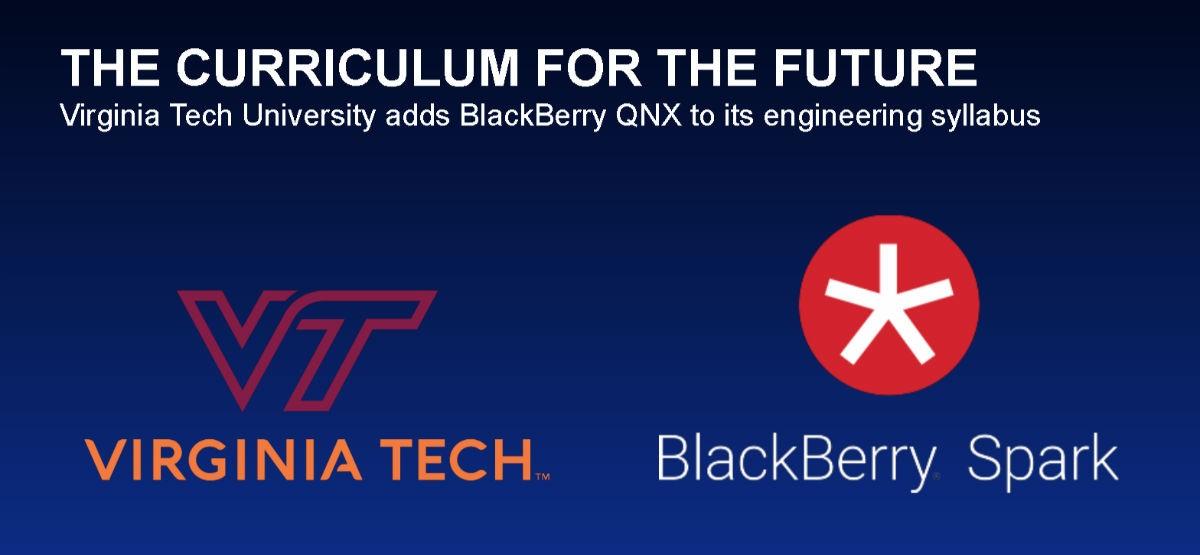
BlackBerry and Virginia Tech are partnering to educate the mechanical engineers of tomorrow on BlackBerry QNX technology, secure and reliable software for connected and autonomous cars.
As part of the agreement, BlackBerry will help advance the Department of Mechanical Engineering’s connected and autonomous vehicle research and provide hands-on training with BlackBerry QNX software.
Additionally, BlackBerry has provided its QNX technology for use in Virginia Tech’s autonomous vehicle concept cars which are competing in the international AutoDrive Challenge under the Team Victor Tango banner.
“As the world advances towards a driverless future, the need for engineers who specialize in safety-certified software has never been more important,” said Grant Courville, VP of Product Management at BlackBerry QNX.
“Virginia Tech has a well-earned reputation for developing engineers who can make an immediate impact. We’re thrilled to bolster their already impressive program by providing students with cutting-edge knowledge and tools that will allow them to solve real industry problems and to innovate as the evolution of connected and autonomous vehicles shifts into high gear.”
Al Wicks, Associate Professor of Mechanical Engineering at Virginia Tech said,
“It is important that our students know what’s happening on the front lines of the connected and autonomous vehicle industry and our partnership with BlackBerry helps by giving them access to the latest automotive-grade software,”
“My goal is to get our students to a place where they are industry-ready with real experience to offer to an employer. With BlackBerry QNX’s help, there is no question that together we will achieve this, setting the next generation up with the tools they need to shape the future of transportation for drivers, passengers and pedestrians alike.”
Virginia Tech’s engineering programs represented by the AutoDrive competition team, trains students in all aspects of connected and autonomous vehicle engineering and development. Courses include Mechatronics, Computer Vision, Robot Motion Planning and Machine Learning.
In response to the DARPA challenges, Virginia Tech began research into ground vehicle autonomy in 2003 and since then many students have gone on to senior positions within the automotive industry including for companies such as TORC Robotics, Uber, Google, GM and Argo AI.


